‘We want to be the Nike of plants’: how a plant shop owner transformed her passion into a brand
October is Filipino American History Month. Hear from Filipino American business owner Sam Shaw as she shares her story on turning a budding hobby into a blossoming plant shop and classroom.
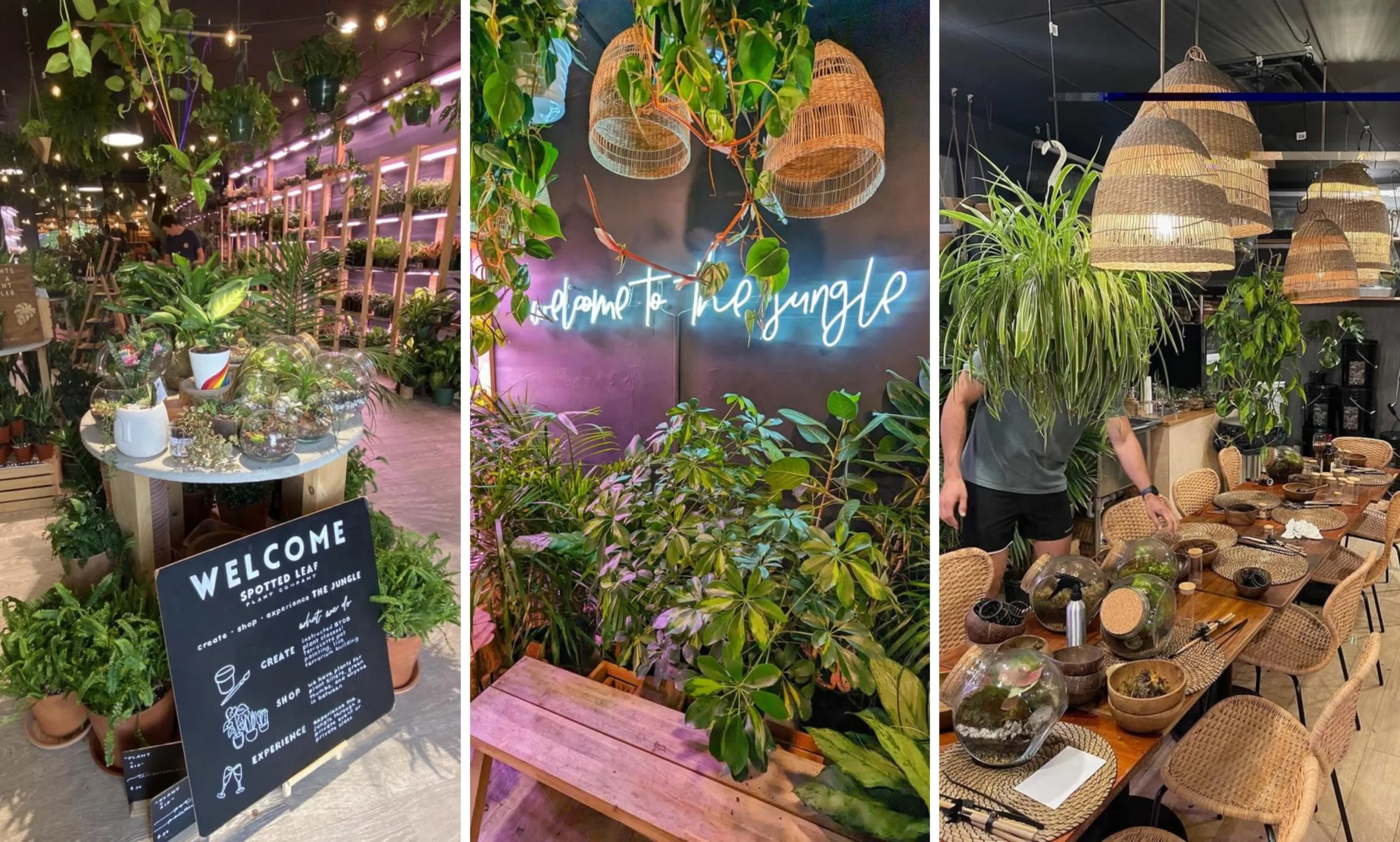
Key business takeaways
- Critically think about what’s authentic to your brand and market around those core values.
- Design your business with diversified income streams to adapt to seasonal fluctuations and boost resilience.
- It’s okay to decline opportunities until your business is ready to put resources behind it.
When the COVID-19 pandemic canceled her wedding, Sam Shaw decided to turn lemons into lemonade. She and her husband Matt transformed their sunroom into a lush, boho escape, set up their webcam, and got married over Zoom with close friends and family.
“We felt like we weren’t just in the middle of New Jersey in the middle of quarantine, and it felt like we were immersed somewhere else,” she said. The game changer was a simple yet impactful addition to the ceremony: plants.
One night over dinner, they started to brainstorm how they could replicate this experience for others in their community who also had important life moments put on pause or just needed to be transported into paradise.
“How can we really make this an immersive experience for people? We don’t want to just open up a plant shop. We want to open up an experiential place that people can come in and really feel like they just stepped into the jungle.” And the idea for Spotted Leaf Plant Co. was born: a plant shop in the front and a classroom in the back.
Testing the waters
At first, it was just Sam running the show. It started with selling packaged plants with instructional care cards on Etsy. She then expanded to pop-up events at farmers markets and makers markets, where they were committed to testing an experiential retail model. For example, they had a section titled “Plants for a Plant Killer” which piqued interest and sparked conversations about plant care journeys.
“We really wanted to try to break that stigma and try to get people to understand, look, we all kill [plants], and it’s okay. I’ve killed many plants in my journey too, but as long as you know what the plant needs and you know how to take care of it, then you’ll be set up for success.” That’s when the educational element of the business sprouted.
Sam took her teaching skills to local libraries, educating the community on “Plant 101” and leading free terrarium building classes to gauge interest. Attendees said they hadn’t seen much of this type of instruction in their community, and, even more importantly, they wanted to see more of it.
Knowing the experiential business model works, it has a niche in the market, and there’s a demand for it, Sam followed the signs and decided to expand to a brick-and-mortar shop. But in order to start this new chapter, she had to close one.
Quitting her job and hiring her first employee
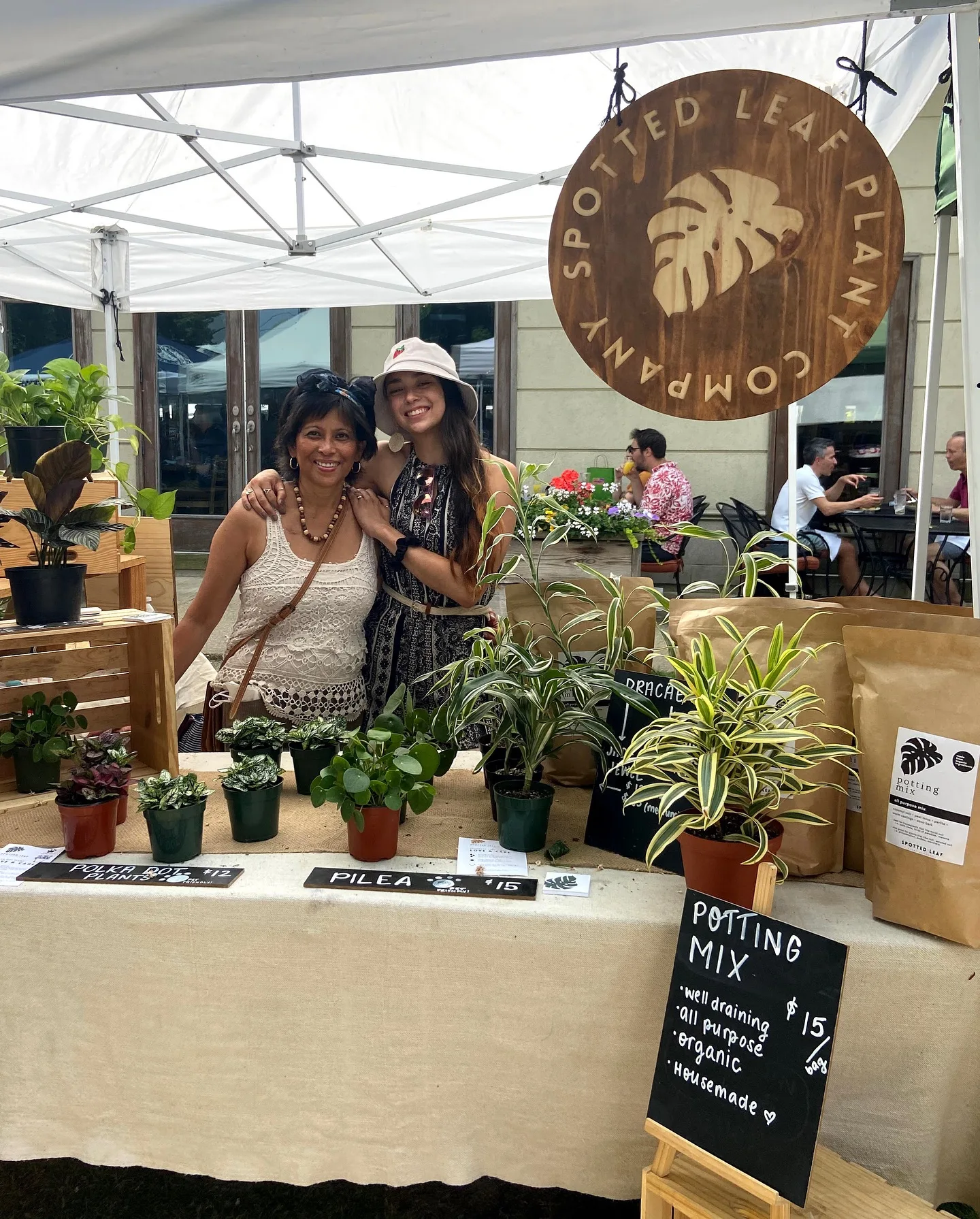
Sam had the dream job as a journalist working in New York City at NBC. It just wasn’t her dream. The hardest part wasn’t quitting her job to pursue that dream; it was breaking the news to her parents. Her mother, an immigrant from the Philippines and a full-time nurse, had sacrificed many of her musical and artistic talents for security.
“I just knew that I didn’t want that life, so to have to tell my mom that I was going to be leaving my stable career to open up a plant store was a very scary conversation,” she admitted.
To Sam’s surprise, her mother said, “Do it. I’ll be your first employee. Quit your job right now because time is short. Don’t let anything stop you from [pursuing your dream] because the drive and the passion will get you where you need to go.”
To this day, that’s the best piece of advice, business or otherwise, Sam has ever received throughout her journey as an entrepreneur. She took it to heart and signed the lease for Spotted Leaf with her mother at heart.
Making an unorthodox business model work
Spotted Leaf is half-retail, half-experiential, and 100% immersive. The plant section sits at the front of the shop, with shelves of curious vines and luscious leaves, plus a neighboring potting station. Weave through the lush jungle, and find the educational classroom nestled in the greenhouse room at the back of the store.
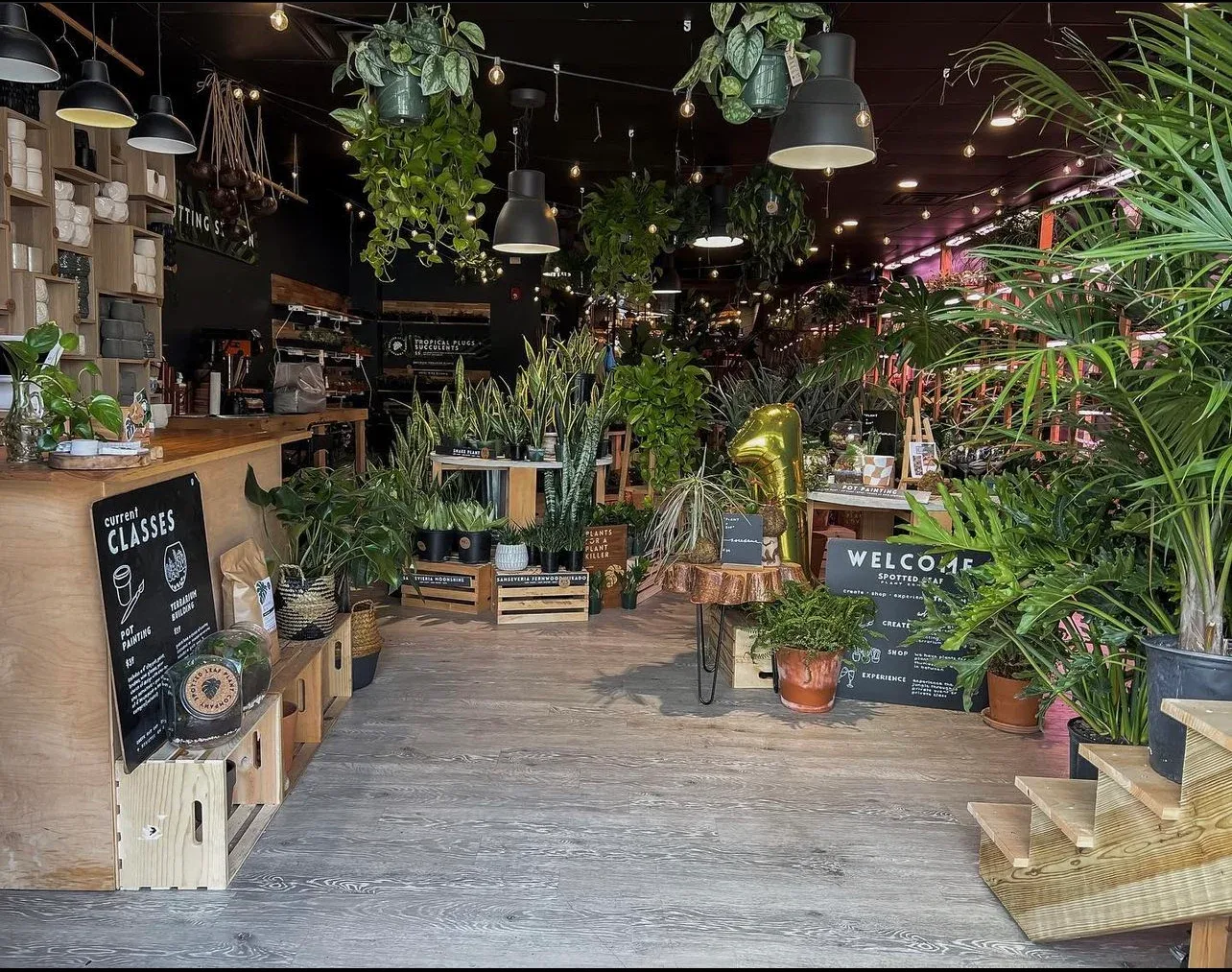
While it might seem complex to essentially be running two businesses at once, Sam said the two revenue streams create a sense of balance.
“We went in with this dual model thinking that maybe one of them was perhaps going to be more substantial than the other, and we would adjust accordingly. So having both in the mix is kind of cool because we can play off of either one.”
Like most small businesses, Spotted Leaf has both slow and busy times. With two streams of revenue, one operation’s slow season could be offset by the other’s busy season. And while the business does occasionally have its dry spells across the board, Sam is always prepared with a realistic plan.
“Sometimes it’s just a matter of increasing marketing a little bit, or it’s just a matter of putting our focus into the seasons that are really strong and knowing that it’ll all balance out at the end,” she said. “We always try to use [the slow seasons] as motivation rather than letting it stop us.”
Sam’s financial optimism comes not only from her dynamic business model but also her financial foresight. The revenue from those early days on Etsy and at pop-ups was always reinvested back into the business.
“It’s always good to invest your money back into the business. And that’s been our mentality pretty much the whole time, and that’s what we’re continuing to do.”
Keeping up with demand
One year into the business, Sam was overwhelmed with demand. It was both a pleasant surprise and an intense undertaking.
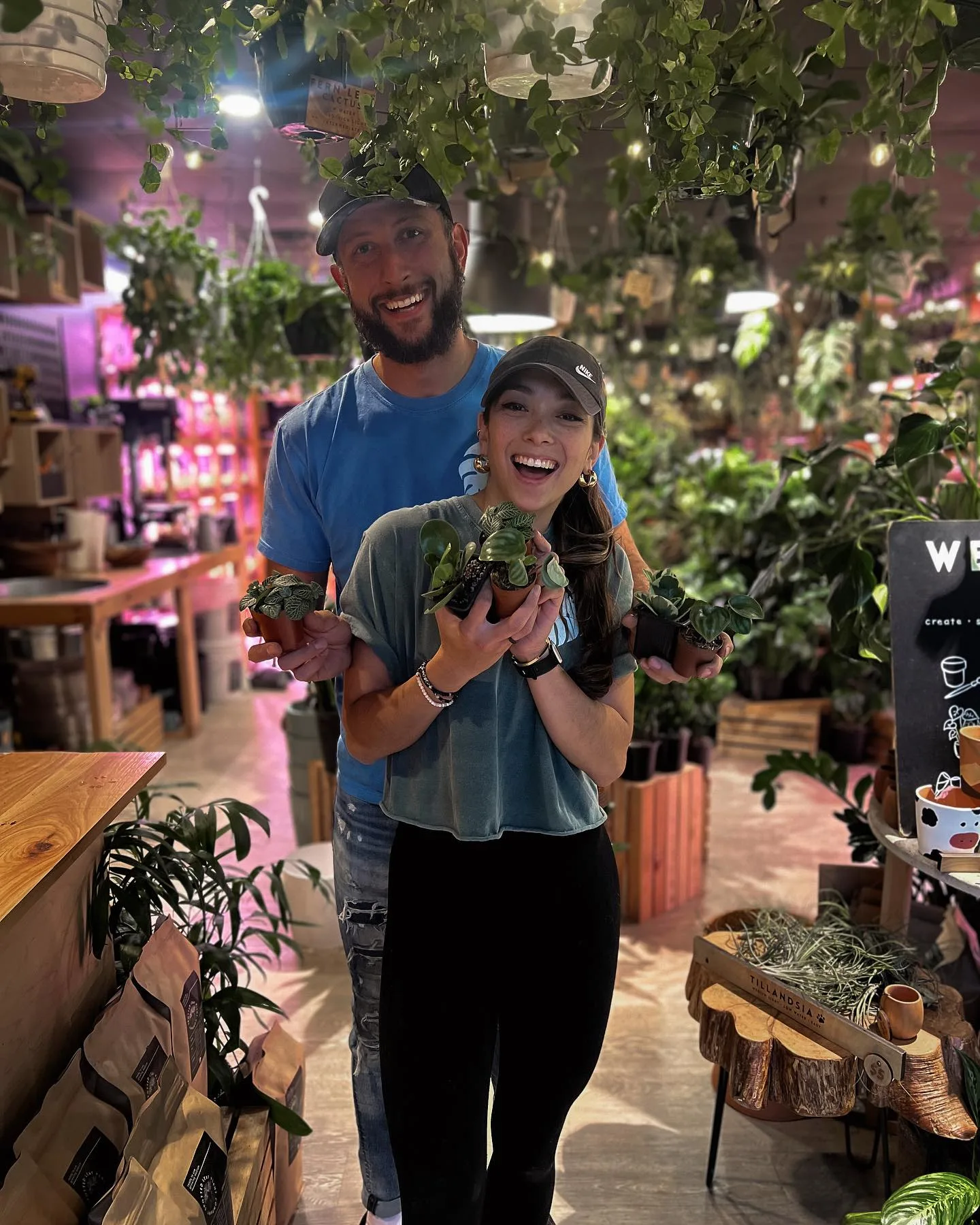
“Even in the first couple of months of us opening our doors, our classes were selling out and our business was full steam ahead, but we weren’t prepared for it. People said, ‘We want to come build terrariums. We want more. We want you guys to come do corporate events. We want you guys to come off site. We want kits. We want school partnerships.’ I thought, ‘SOS. I don’t think I can do all of this on my own.’”
She needed something beyond part-time help; she needed a business partner. So she turned to her life partner Matt to run the business together. Sam said simply recognizing that she needed help was a huge feat.
“I know as a small business, it’s tough sometimes to ask for help or to hire more people or make sure that they’re on the same page, but I recognize that we could really be going further if we had some more help.”
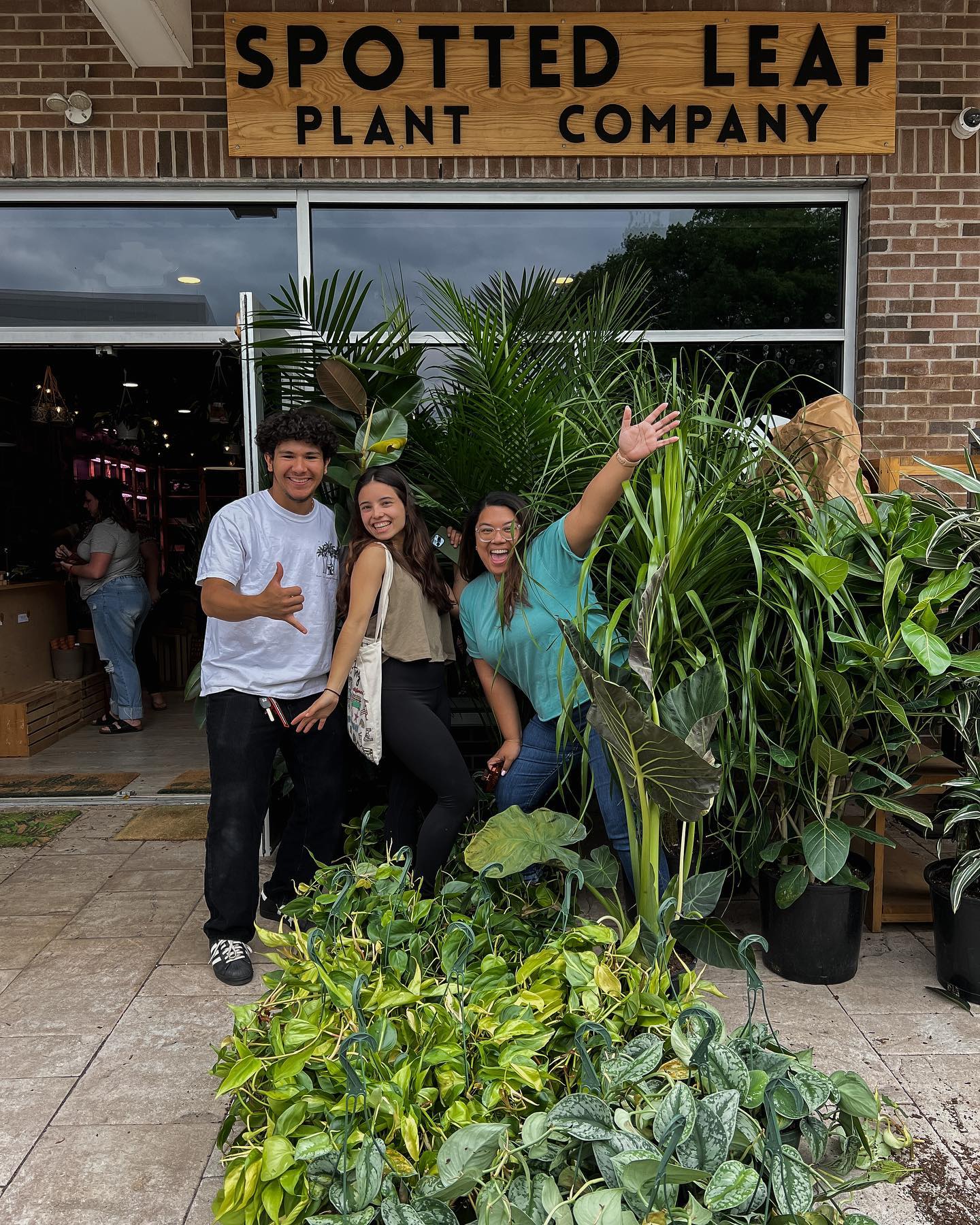
With more staff reinforcements and her business partner to lean on, Sam said she’s in a much better position to address the overwhelming demand from the community.
Soaking in the milestones
Like most small business owners, Sam doesn’t have a traditional business background. Instead of letting that inhibit her ambition, she owns it.
“I didn’t go to school for business. I’m not a businesswoman by any means. I’m leading by my passion, my value for other people, and how I want them to experience our store.”
Three years in, she learned a crucial lesson she wished she’d known from the start: Soak it in. That first customer, that first class, and opening day are all core memories that Sam wishes she was more present in amongst the hustle and bustle of being a small business owner.
“A lot of the firsts, it’s like a blink of an eye, and I think sitting in those moments is really important to root yourself in why you’re doing this and why you’re here right now. We were so focused on the goal and not focused on right here and right now. Making sure that the process and the journey is equally as important as the end result.”
Building a brand
Maintaining brand authenticity is a priority for Sam. “I think now we’re shifting our mentality a little bit to think of ourselves a little bit more like a brand, even though we’re still a small business,” she said. “It’s that brand mentality and that customer loyalty mentality. We want to be the Nike of plants.”
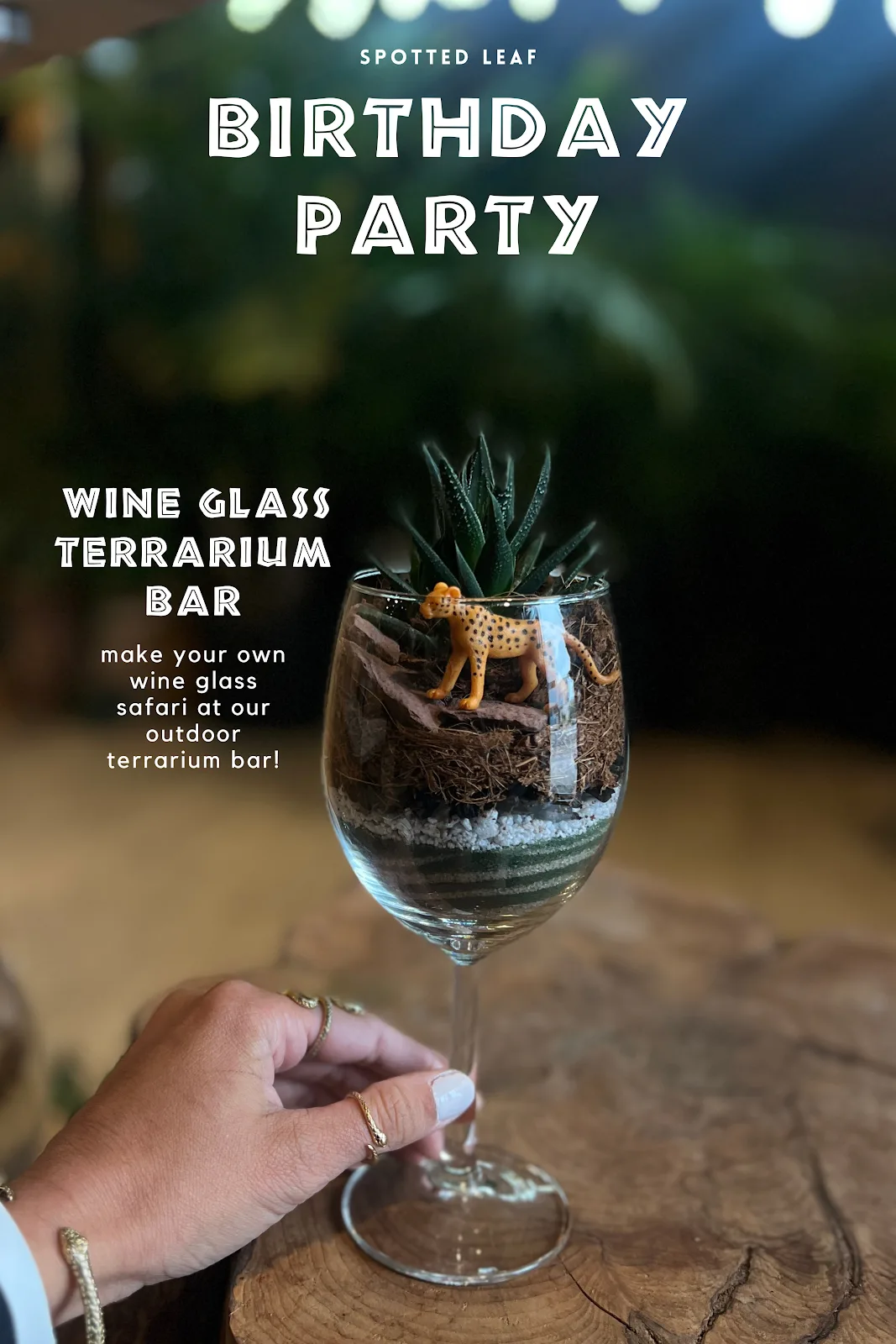
To become an iconic brand, Sam experiments with guerrilla marketing, or low-cost, innovative marketing tactics for high visibility. For example, Sam hosted a birthday party at the shop for the community to come together and celebrate Spotted Leaf’s one-year anniversary. Now it’s become an annual tradition. There’s a spin-the-wheel for giveaways, free plants, 10-minute terrarium builds, and more.
“The first year we did that, it was one of our best days of the year; it’s literally a holiday that we essentially created for our customers. Our customers are genuinely the driving force behind the business, and we really wanted to give back to ’em. So that is a way that I like to look at marketing, where we do a lot to give back to our customers.”
Marketing is key for small businesses to tell their stories and build a brand and a following, but it’s important to be sure your business is prepared to take on certain marketing channels and activations. For Spotted Leaf, there was an untapped customer segment for corporate events on LinkedIn, but the business wasn’t quite ready to leverage it.
“If we need to say no to some opportunities right now, we need to say no for now, and then hopefully down the line we can get there,” Sam shared.
Two years later, Sam said the business is now ready to capitalize on the corporate events opportunity and establish its brand further. The decision became clear as the business had a solid understanding of its bandwidth in terms of time, money, and energy.
While Spotted Leaf is scaling and leveraging new opportunities, it stays committed to the most important pillar of its brand: inclusion.
Growing up in a mixed household, Sam said everyone was welcome at her house. At every Filipino party, she recalls people from all walks of life coming over and grabbing a plate.
“At every event, it was, ‘I don’t care who you are. I don’t care what connection we have, but you’re coming.’ And our family gatherings would have tons of people; some of them aren’t even in the family, but they’re still family. I think that’s such a beautiful thing. There’s so much space to hold, and family can be such a broader term than the immediate.”
This welcoming environment is at the core of Spotted Leaf’s brand and legacy. The way her Filipino family uses food to bring people together, Sam uses plants.
“We’re not from the same places. We’re not even from the same households. But we all still come together and celebrate life.”
Photos from Spotted Leaf Plant Co.